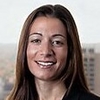Welcome to BARBRI, the trusted global leader in legal education. Continue to access the same expert-led Strafford CLE and CPE webinars you know and value. Plus, explore professional skills courses and more.
About the Course
Introduction
This CLE course will guide patent counsel on the impact of recent decisions addressing "a" and the implications of these decisions on U.S. patent practice. The panel will offer best practices of fundamentally sound principles to prepare and prosecute a U.S. patent application to avoid careless claim terminology and untoward language in the specification.
Description
The more care taken during patent prosecution, the more likely the patent will be construed as the patentee desires and will withstand any challenges. A patent drafter's selection of even the smallest of words may significantly impact how a claim is construed. "A," the shortest word in the English language, amazingly causes so much trouble for a patent owner.
The use of "a" has proven problematic in patent prosecution. Does "a" mean "at least one," as KCJ Corp. v. Kinetic Concepts Inc., 223 F.3d 1351 (Fed. Cir. 2000) finds and Baldwin Graphic Sys. Inc. v. Siebert Inc., 512 F.3d 1338 (Fed. Cir. 2008)? Or does it mean one and only "one," as the Federal Circuit held in Harari v. Lee, 656 F.3d 1331 (Fed. Cir. 2011) and Insituform Techs. Inc. v. CAT Contr. Inc., 99 F.3d 1098, 1106 (Fed. Cir. 1996)?
In the context of a non-patent statute, in the Supreme Court's recent 6-3 decision in Niz-Chavez v. Garland (2021), Justices Gorsuch and Kavanaugh devoted some 40 pages to dueling conclusions. The Supreme Court held "a" means one and only one based on the facts of Niz-Chavez and the statute.
Returning to the more familiar grounds of assessing the fundamental significance of claim construction to patentability, validity, and infringement determinations can put the spotlight on the importance of word selection, and in this case, the use of "a" in drafting the claims and specification of a patent application (does that mean "one and only one" application or at least one application?). The Federal Circuit has pointed out that it is the responsibility of the patent drafter to avoid textual sloppiness and resolve ambiguity.
Listen as our authoritative panel of patent attorneys establishes that the mighty word "a" can be dangerous to a patent owner and examines the impact of recent decisions addressing "a" and the implications on U.S. practice. The panel will offer best practices of fundamentally sound principles to prepare and prosecute a U.S. patent application to avoid careless claim terminology and untoward language in the specification.
Presented By

Ms. Kostiew is an experienced patent attorney with a demonstrated history of working in the consumer goods industry including beauty and personal care products and compositions (bars, liquids, sanitizers, shampoos, conditioners, etc.). She is skilled in Patent Prosecution, Freedom to Operate (FTO), Patent Portfolio Analysis, Patent Law, Technology Transfer, NDA/CDAs, and other aspects of Intellectual Property.

Dr. Browning focuses on patent litigation and appeals. He has led teams as first chair at trial, at Markman proceedings, and on appeal. His litigation experience includes taking and cross examining witnesses at trial, briefing and arguing dispositive motions, drafting appellate briefs, and arguing cases on appeal. He has also managed day-to-day litigation activities in actions involving multiple parties. In addition, he advises clients on patent matters, including coordination of prosecution and U.S. and foreign litigation strategy.

Ms. Burgy focuses on opinion work, client counseling, patent prosecution and management, and litigation in the chemical, pharmaceutical, and biotechnology arts. She counsels her clients on a diverse range of patent issues. She assists clients on single-patent issues as well as complex matters involving multiple patents and applications requiring ongoing advice on patent portfolio strategy and development, with an eye towards litigation. She has assisted clients in the early stages of development through due diligence and patent portfolio analysis.

Mr. Irving has 47 years of experience in the field of IP law. His practice includes due diligence, patent prosecution, reissue and reexamination, patent interferences, and counseling, including prelitigation, Orange Book listings of patents covering FDA-approved drugs, and infringement and validity analysis in the chemical fields, as well as litigation. He has served as lead counsel in many patent interferences.
-
This 90-minute webinar is eligible in most states for 1.5 CLE credits.
-
Live Online
On Demand
Date + Time
- event
Thursday, August 22, 2024
- schedule
1:00 p.m. ET./10:00 a.m. PT
- Analysis of cases where "a" meant "one or more"
- Analysis of cases where "a" meant "one and only one"
- Supreme Court decision and revelation of just how big a deal "a" can be
- Best practices for preparing and prosecuting patent applications, echoing that sometimes it is not most important to write to be understood, but to write in such a way that the author cannot be misunderstood
The panel will review these and other high profile issues:
- How can a single word/unfortunate punctuation in claim language and specification lead to the demise of U.S. patent rights?
- How do recent decisions impact drafting claims and specifications?
- What steps can counsel take to avoid careless claim terminology and mistakes in the specification?
Unlimited access to premium CLE courses:
- Annual access
- Available live and on-demand
- Best for attorneys and legal professionals
Unlimited access to premium CPE courses.:
- Annual access
- Available live and on-demand
- Best for CPAs and tax professionals
Unlimited access to premium CLE, CPE, Professional Skills and Practice-Ready courses.:
- Annual access
- Available live and on-demand
- Best for legal, accounting, and tax professionals
Unlimited access to Professional Skills and Practice-Ready courses:
- Annual access
- Available on-demand
- Best for new attorneys




